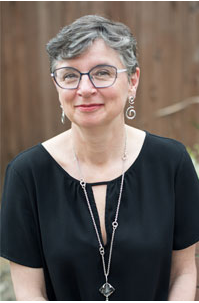by Grayson Hunt, Karma R. Chávez, and Lisa L. Moore
As we write, President Biden has recently overturned the former president’s transgender military ban. Two years ago, Lisa Moore and Grayson Hunt put out a statement about this ban. It was hard to write, and our first version received some powerful engagement from none other than co-editor, Karma Chavez, who reminded us that a critique of the ban need not entail an uncritical support of the military. We rewrote that statement and it included a few lines that we still think about: “We are committed to supporting our transgender students, both those who serve in the military and those who are harmed by imperialism, and acknowledge that these positions are not separate.” If we need a reminder of the correlation between militarism and anti-trans imperial violence, our LGBTQ Studies colleagues PJ Raval and Curran Nault have created one with their award-winning documentary, Call Her Ganda, about how three women take on US imperialism in response to the murder of Filipina transwoman Jennifer Laude by a U.S. Marine. The freedom for U.S. trans people to participate within the military must not be used to pink-wash the U.S. military.
Also on our minds: It has been almost a year since the Covid-19 pandemic began in North America. How is transness faring under virtual and shelter-in-place conditions? On the one hand, poorly of course, since transgender people are under-employed and uninsured at higher rates than their non-trans counterparts, and gender-affirming care has been delayed for many because of the pandemic. And trans people suffer from less social support–here we think about all our students, many of whom have returned to their family homes and communities, sometimes having to go back into the closet to do so.
On the other hand, there are trans virtual spaces everywhere and those spaces tend to be free. So many of us with a phone, a charger, and wifi can find support. The Transgender Feminisms Reading Group, which started “IRL” in March 2018, is entering its third year. And while it’s sad that we no longer get to meet at BookWoman bookstore here in Austin, it has been nice to see friendly faces from all over the U.S. and Canada zoom in for our monthly meetings.
Another trans gain during quarantine was that LGBTQ Studies was still able to host the 3rd biennial Trans Thinking//Thinking Trans conference. This trans theory conference was first hosted (IRL) in 2016 at the University of Oregon. For many, that conference was truly lifesaving and life-changing. LGBTQ Studies wanted to host this third iteration of the conference for all those on- and off-campus thinkers, theorists, writers, activists and students for whom Trans Thinking can open up social and professional communities. This kind of inclusion, hard thinking, rigorous critique, and creativity is what all of us need and deserve.
We heard from participants that hosting this conference virtually in 2020 was a boon for trans community. The conference became global, since more people could tune in and participate without the prohibitive and frankly unsustainable requirement for conference travel. We had over one thousand people register for the conference, which was unheard-of in its pre-pandemic iterations. We were able to redirect the money we would have spent on hotels and flights to almost all participants in need (students, independent scholars and activists, and underemployed people). While we were sad that we couldn’t all hang out in person and develop those life-sustaining conference friendships, we enjoyed the cyber community that has a chance to last until the next IRL conference or longer.
This QT Voices Issue is dedicated to that community-building and is meant to offer a glimpse into that world, through conversations, poems, performance art, book reviews, and essays about transness and about the conference. We hope this issue is a way for those of you that did not attend the conference to experience, and for those who did to remember (in the words of our contributor Nick Winges-Yanez) the transformation of “misfit into kinship.”

Grayson Hunt is Director of Equity Outreach and Resources in the Provost’s Office, and Associate Director of LGBTQ studies in the Center for Women’s and Gender Studies at the University of Texas at Austin. He completed his PhD in philosophy at the New School for Social Research in 2013. He specializes in transgender studies, feminist theory, and Continental philosophy.

Karma R. Chávez (she/her) is Associate Professor and Chair of the Department of Mexican American and Latina/o Studies, and a member of the LGBTQ Studies Advisory Council at The University of Texas at Austin.

Lisa L. Moore (she/her) is Archibald A. Hill Professor of English, Professor of Women’s and Gender Studies, and Director of the LGBTQ Studies Program at The University of Texas at Austin.
